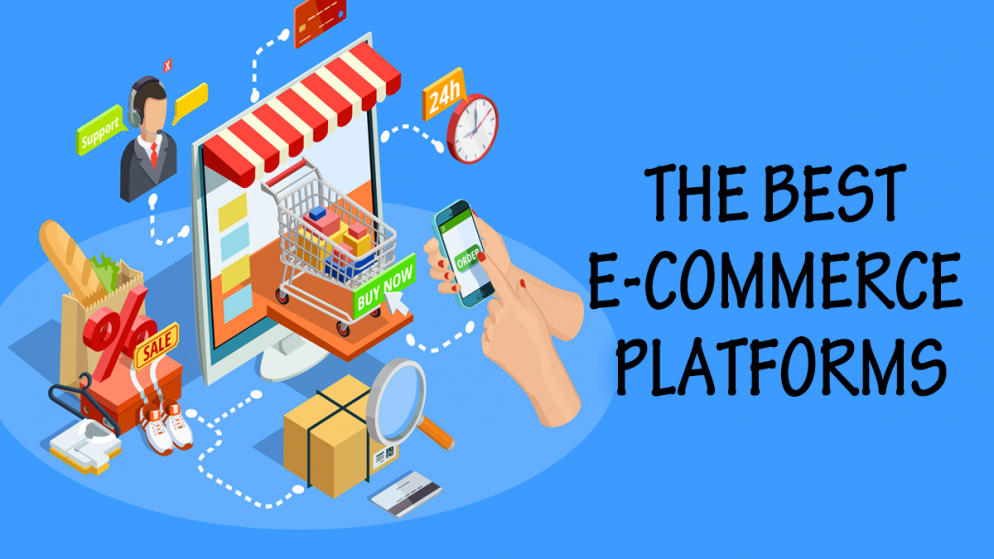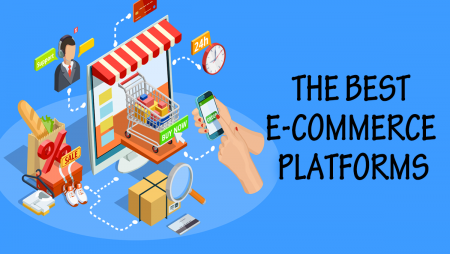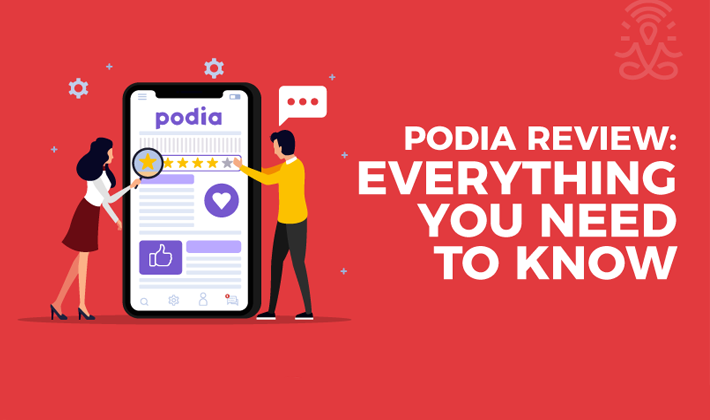

About Shopify
Shopify has been thriving since it was founded in 2004. Powering more than 3,8 million live websites as of August 2022, Shopify provides users with unmatched functionality while maintaining a smooth and friendly user experience.
For that reason, we have conducted thorough research and written this Shopify review with a view to giving you profound insights into what Shopify has to offer. Lots of people ask us which ecommerce platform is the best suited for a company just getting started with an online store.
The short answer is that Shopify offers all the functionality you need, but stay tuned for a more detailed Shopify review below.
Shopify is filled with tools for launching a site within minutes, plus you don’t have to worry about self-hosting or buying a domain name from a third party. In that respect, one could call it the perfect out-of-the-box solution, built with pricing plans that cater to small starter stores as well as shops that are bringing in millions of dollars in sales.
What Is Shopify & Is Shopify Worth It?
If you are tired of reading these walls of text, check out our visual Shopify review below to catch all the pros and cons of Shopify & what is Shopify and how does Shopify work!
Shopify is a SaaS (software-as-a-service) eCommerce solution, meaning it includes everything you need to create a website. Instead of having to get yourself a host and dealing with technical stuff, you just need to go to the main website, create an account and that’s basically it. You can launch your Shopify store with no bustle and hustle.
Shopify offers a 14-day free trial and you can try out this platform easily without entering credit card information. Once you decide to opt for a plan, Shopify will charge you a monthly fee, and this varies depending on your plan.
No matter how big your business is, Shopify is always an option worth considering. Its scalability is one of the factors that help build trust and reputation among users. With an astonishing amount of add-ons and integrated functions, the eCommerce platform ensures utmost satisfaction even for large stores.
Why Choose Shopify? How Does Shopify Work? ?
Since the launch, the platform has quickly grown from a small player to one of (if not the) leading ecommerce solutions alongside BigCommerce, Volusion, Magento or WooCommerce.
Clearly, there has to be a reason why Shopify has grown to be this popular and held its position in the market for more than a decade. Perhaps its main advantage is that Shopify offers a great balance between ease of use and functionality.
On the one hand, Shopify is incredibly friendly even for beginner users who haven’t operated an ecommerce store before. And on the other, it delivers all the features that a business owner might need. Plus, you don’t have to take a web development or coding class.
That being said, more advanced users gain access to the CSS and HTML files, and can upgrade their Shopify plan to get more robust features as their store grows. Overall, it’s a beautifully constructed ecommerce platform with plenty of themes that look modern and stylish but also simple and minimal if that’s what you’re looking for.
If you’re curious, some of the more notable brands using Shopify include: General Electric, Amnesty International, Tesla Motors, Encyclopedia Britannica, Foo Fighters, GitHub, and many, many, many more.
Shopify Pricing Explained ?
To make this clearer, we’ve put together a Shopify fees calculator, which you can use to work out how much you will be spending each month exactly – based on your revenue.
There are four main columns in the calculator. Each column corresponds to a specific usage plan of Shopify. Each plan has its specific traits and limitations, hence the price differences. We discuss those plans further down in the review. If you’re not sure which you should choose, read below.
There are four main columns in the calculator. Each column corresponds to a specific usage plan of Shopify. Each plan has its specific traits and limitations, hence the price differences. We discuss those plans further down in the review. If you’re not sure which you should choose, read below.
Shopify Review: General Shopify Features Available in All Plans ?
I have tested quite a few ecommerce platforms in the past, and I must admit, Shopify has the most thought-out feature set I have encountered. Almost everything you need to run your own online store is taken care of by a distinct feature.
Let’s first discuss the general features that come with all Shopify plans, and then get into detail on which unique features you get with each pricing plan. If you spend a lot of time browsing through Shopify reviews or checking out the highest-ranked CRM and website builders online, you’ll notice that Shopify has a lot of features to offer.
We’ve scoured through many Shopify reviews from leading companies online, and tested the software ourselves to come up with this list of the most crucial components on Shopify.
If all of those features aren’t enough to get you excited, there are also things like hundreds of professional themes, a full blogging platform, unique domain names and SSL certificates, 70 payment gateways to choose from, marketing and SEO support, and more.
Shopify Review: SEO and Marketing Features
If you have an amazing store but your customers are unable to find it, then chances are you will be very disappointed with the sales figures. Shopify offers great features for both SEO and Marketing. Thanks to the built-in Search Engine Optimization (SEO) features, your site will easily be found on all major search engines such as Google, Bing, and Yahoo.
What’s cool is that even though the SEO settings are automated, you can go to each product page and customize your own target keywords, URLs and more.
If you really want to customize your store further, the interface offers customizable header, title, and meta tags. Also, the URLs are all SEO-friendly. Shopify has partnered with Google in order to occasionally give you advertising money for a new AdWords account, too.
I certainly wouldn’t base my decision on which ecommerce platform gives me money to advertise on Google, but I guess it’s a nice bonus. The gift cards are extremely user-friendly, and you don’t have to go out to find a third party app for better gift card features.
Shopify Payments
Traditionally if you wanted to accept payments, you would have to use a third-party payments processor like Stripe, PayPal, or others that would charge a certain fee per transaction.
Shopify has created their own payment processor called Shopify Payments (Powered by Stripe). If you decide to sign up for this program then all transaction fees will be lifted.
We covered credit card fees in the pricing area earlier, but it’s worth noting that you do have the option to integrate with over 70 different payment gateways. These include accepting payments from credit cards, Google Checkout, PayPal, and many more.
The gateways all come with their own transaction fees. Since these can get a little confusing, I strongly recommend that you familiarize yourself with them before signing up, as you might otherwise be surprised at just how much you’ll have to pay.
Shopify Review: Unique Features in Each of the Shopify Plans ⭐
At just $9 per month, Shopify Starter is possibly one of the cheapest options available to people who are looking to sell online. However, the price is so low because it doesn’t actually provide you with a standalone online store website.
The way Shopify Starter works is that it allows you to create products in the Shopify UI, and set up individual Buy buttons for them. You can then take those Buy buttons and publish them anywhere on the web.
When setting up your buttons, you get to customize the way they look, the sizes, the colors, the images used alongside, etc. Then, when you’re done, Shopify gives you a piece of code that you can post on any website. The code looks something like this:
This code will allow you to display a picture, price and description for your product. There is no restriction to singular products, so you can add as many products as you like. If you already have a blog website, for example on WordPress, then Shopify Starter will allow you to display your products on that site.
Additionally, when you want to use a Buy button on a social media platform like Facebook, you get a special embed code for that as well. Speaking of which:
Basic Shopify
The next plan up is the Basic Shopify plan which starts at $29 a month. Unlike the Shopify Starter plan, this one gives you the full power of the Shopify system and allows you to create a standalone online store.
- Two Shopify staff accounts
- Unlimited number of products
- Unlimited file storage
- 24/7 phone, email and live chat support
- Fraud analysis (detects fraudulent activity on your Shopify account)
- Discount codes you can offer to your customers
- A blog module
We will cover templates in more detail in one of the next sections, but it’s worth quickly highlighting what is available with each Shopify package. At the time of writing, with the Basic package, you have access to 10 free templates and 50+ paid ones.
The theme showcased below is probably the most used on the site – called Brooklyn. Although it’s very attractive, it’s also kind of overused, so if you want to set yourself apart from the rest, you might want to look at other options. The paid themes start at around $100 a piece.
Shopify Review: Ease of Use ?
In fact, Shopify is one of the easiest to use ecommerce platforms out there, especially if you’re a business that’s just getting their ecommerce adventure started.
As soon as you sign up, you’ll see a user-friendly dashboard, and you’ll be taken by the hand through all of the main steps on your way to configuring your store and making it available to the public.
As of June 2017, Shopify overhauled their backend and even gave it a new color scheme. This was done to improve the user experience by introducing more contrast into the UI. Besides the colors and fonts, Shopify added a prominent new search bar in the dashboard, helping you quickly type in keywords and find what you’re looking for without much thought.
For example, you might want to find a certain product or customer. In that case, all you have to do is punch in the right words, and Shopify will return everything that matches – be it a product, an order, customers, etc.
Setting a new design for your store is similarly easy to do. The template directory comes categorized based on niche, purpose, design style, and Shopify also lets users know which templates are the most popular. Then, installing your theme takes only a couple of clicks. (More on Shopify templates in one of the sections below.)
Shopify Review: Shopify Themes and Design ?
One area where Shopify really excels are the themes and designs available. The company offers some of the most professional-looking themes of any ecommerce platform. At the time of writing, there are eight free themes available and more than 60 paid ones (in the range of $160-$180 a piece).
There used to be more themes in the catalog before, but Shopify decided to purge the old ones and stick to only modern stuff that’s optimized for modern audiences and search engines.
That being said, each theme is not just “a single theme,” but actually comes with a handful of styles included. For example, a theme called Icon comes with four distinct styles that differ not only in the color scheme, but also in how the elements on the page are presented.
There are multiple collections and industries highlighted in the Shopify theme store, so we’re fairly confident you’ll be able to find something that fits your business model.
Shopify Review: Security ?
Security should be taken very seriously when you run an ecommerce site. After all, you’re going to be dealing with credit card info of your customers’, their order details, your own product details, and many more sensitive pieces of data.
Shopify knows this and understands the responsibility. Shopify has its system hosted on a Level 1 PCI DSS compliant server. In other words, your data, and the data of your customers is always secure. In addition, all pricing plans (besides Lite) offer 128-bit Free SSL certificate at no added cost.
Specifically, Shopify:
- Maintains a secure network
- Protects cardholder data
- Maintains a vulnerability management program
- Has strong access control measures
- Monitors and tests their networks
- Maintains an information security policy
Moreover, while data security is very important to retailers, many also worry about their store always being available. For example, it’s reported that just one hour of downtime on Prime Day may have cost Amazon up to $100 million in lost sales.
Shopify provides their customers with a 99.98% uptime guarantee and helps you avoid losses due to your store being unavailable. Furthermore, Shopify takes care of backing up your store securely and then gives you access to those backups if needed.
Shopify Review: The Shopify App Store ?
There are more than 2000 apps available in total, and they come in all kinds of different shapes, sizes, and divided into a handful of helpful categories. You’ll find apps to help you with marketing your store, apps for emails, push notifications, SEO, access control, finances, and a lot more.
Also, in 2018, Shopify shifted focus to a new breed of machine learning algorithms, so that they could provide today’s users with a more intuitive and immersive experience. Therefore, the app store now helps you to discover the specific tools that are the most likely to appeal to your individual scenario and business model. Handy right?
Basically, the App Store is a collection of premium and free applications intended to extend and improve the functionality of your Shopify store.
When conducting this review, one thing we liked most about Shopify’s app store was the fact that you don’t need to be a developer to use any of the tools you find there. Everything is plug-and-play.
Shopify Review: Customer Support ?
If you find yourself struggling to do something with your online store then Shopify has one of the best customer support teams in the industry.
Regardless of which pricing plan you pick, the company has 24/7 full customer support, which includes phone support (not on the Lite plan) as well as chat and email support. Another great form of help offered by Shopify is access to a sizable support section directly through their website, including user forums, tutorials and FAQs.
Overall, you have the ability to either speak to a professional or learn about the system yourself. Obviously, some people hate waiting on the phone for a Shopify support rep, so we feel like the forums, courses, and videos are enough for you to figure out most things.
Shopify Review: Frequently Asked Questions ?
Is Shopify safe to buy from?
Absolutely yes. It’s totally safe to buy from online stores hosted by Shopify.
Can you really make money with Shopify?
In some cases, making money on Shopify doesn’t even require you to sell anything at all. For instance, the Shopify affiliate marketing program lets you earn money per successful referral made from your account to the Shopify platform.
Is Shopify profitable?
Shopify is packed with lots of eCommerce features yet it is fairly easy to use. It is suitable for any eCommerce user regardless of their technical background. However, a downside of Shopify is the high transaction fees it charges for every purchase.
What are the best Shopify alternatives?
Magento, BigCommerce, or PrestaShop, can be great solutions for Shopify alternatives.
Is Shopify good for beginners? Is Shopify worth it for a small business?
As you can see from our Shopify review, Shopify is a dynamic all-in-one solution to host and manage an online store that doesn’t take much muscle and technical expertise. Thus, it’s ideal for newbies and amateur users. So, is Shopify easy to use? The answer is yes!
Is Shopify legit?
Yes, it is. Selling on Shopify is a legitimate and profitable business.


















